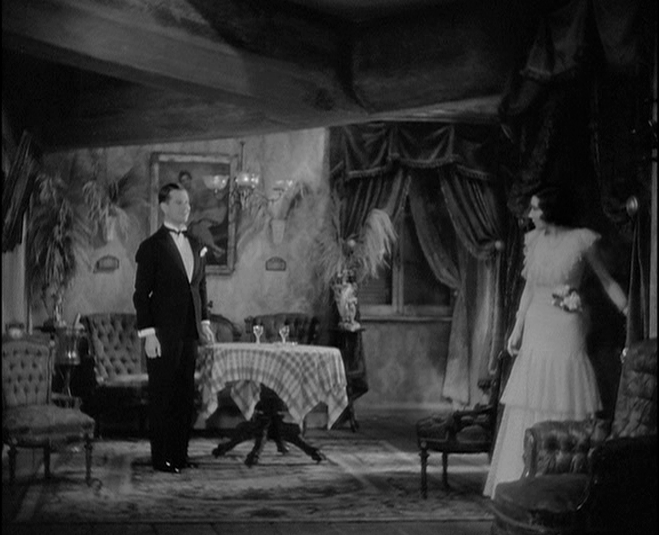The Smiling Lieutenant is a divisive picture. For those expecting an out-and-out musical, it will disappoint. Retaining the elemental contours of the Strauss operetta and a good deal of its music, it presents songs few in number and definitely American and vulgar in character. (Can you name another operetta with a song like “Jazz Up Your Lingerie?”) Its demonstration of Paramount panache is mixed: the sets are obviously expensive, but always maintain an accent of Astoria—slightly claustrophobic, presenting reasonable depth while never quite airy enough. As a pre-Code picture, The Smiling Lieutenant is thoroughly adult in sensibility and register, but lacks for moments of wincing depravity or bad manners to be quoted by admirers. What’s more, seen in an off light, its sexual politics—mysterious and intuitive, enacted rather than contemplated—can look rather conservative and, more important, emotionally unconvincing. Even Lubitsch’s generally sensitive biographer Scott Eyman complains that “the wrong girl gets the man” and judges the thing “too ooh-la-la by half.”
Suffice it to say, these are all among the film’s minor strengths, as well as elements that mark it as memorable and distinctive next to its more conventional contemporaries. There’s not much story and what of it there is is told at a deliberative, luxuriating pace. No mistaken identities or games of deceit here, just a man falling in love with one woman and then learning to accept another. Within this slim treatment resides a universe of feeling.
Maurice Chevalier begins as a roguish lieutenant in name only—with no wars to fight, his social position arises chiefly from conforming to sexual expectation. And yet his first number, “Toujours L’Amour in the Army,” betrays a prickly entitlement that amounts to a rote, unattractive sexuality, as if a bevy of European beauties at Chevalier’s call was a socially-mandated burden. There’s a volatility in the performance, too, an angry awareness on Chevalier’s part of how little legitimate emotion resides under the schtick, of how simple American audiences want their French heartthrobs to be.

